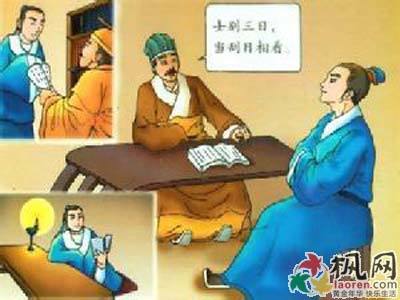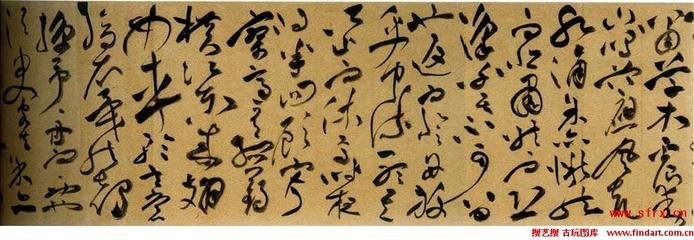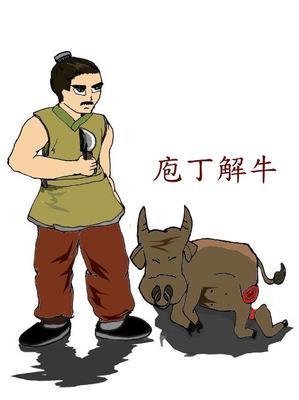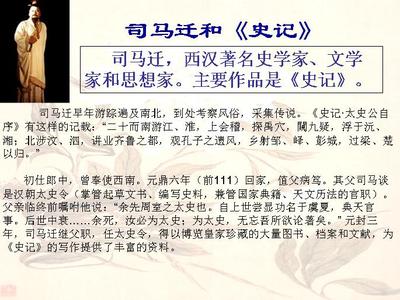学校专业英语要求培养学生一定的阅读理解能力。下面是小编带来的关于英文原文文章带翻译,欢迎阅读!
关于英文原文文章带翻译精选
England's Bar Customs英国人的酒吧礼仪
Amazingly for the British, who love queues, there is no formal line-up -the bar staff are skilled at knowing whose turn it is. You are permitted to try to attract attention, but there are rules about how to do this. Do not call out tap coins on the counter, snap your finger or wave like a drowning swimmer. Do not scow or sigh or roll your eyes. And whatever you do, do not ring the bell hanging behind the counter -this is used by the landlord to signal closing time. The key thing is to catch the bar worker' s eyes. You could also hold an empty glass or some money, but do not wave them about. Do adopt an expectant, hopeful, even slightly anxious facial expression. If you look too contented and complacent, the bar staff may assume you are already being served.
就爱排队的英国人而言,酒吧里看不到正式的排队,这令人感到惊讶。酒保有本领知道该轮到谁了。你可以做些动作引起酒保的注意,但有规可循。不要大声嚷嚷,不妥在吧台面上敲击钱币,不要叭叭地弹手指,不要像快淹死的人那样挥动手臂,不要绷着脸,不要唉声叹气,不要翻动眼珠。在不该干的事当中还绝对不要摇晃挂在吧台后面的铃,那是酒吧老板用的,表示关门时间到了。关键是你要让酒保看见你。你可以举起空杯子或钱,可不要摇晃。你脸上可以流露等待、期望,甚至略带焦急的表情。你如果显得太心满意足的样子,酒保会认为他们已经为你提供服务了。
Always say "please" and try to remember some of the British bar staffs pet hates. They do not like people to keep others waiting while they make up their minds. They don't like people standing idly against the bar when there are a lot of customers wan-ting for service. And they do not like people who wait until the end of the order before asking for such drinks as Guinness stout which take consider-ably longer to pour than other drinks.
要把"请"字挂在嘴边,要尽量记住一些英国酒保最厌恶的事。他们不喜欢酒客拿不定主意而让他们等着;不喜欢好多客人等着买涌而有人却靠着吧台站着;也不喜欢有人等到最后才说要喝像爱尔兰烈性黑啤酒那样的酒,因为比起别的酒来,准备这种泊的时间要长得多。
One Dutch tourist who spent six months visiting 800 of Britain's 61,000 pubs and interviewing 50 publicans and bar workers and more than 1,000 customers said: "I cannot understand how the British ever man-age to buy themselves a drink." But they do, and if you follow these tips you should be able to do so, too.
一个曾花了半年时间,去了美国61,000家酒吧中的800个,访谈到位酒吧老板和酒保以及1,000多个酒客的荷兰旅游者说:"我不明白英国人是怎么给自己买到酒的。"可事实上他们就能。如果你按着本文所说的忠告去做,你也能如愿以偿地买到酒。
Speaking of tips, you should never offer the bar staff a cash gratuity. The correct behaviour is to offer them a drink. Pubs pride themselves on their egalitarian atmosphere. A in would a atmosphere. tip cash be a reminder of their service role, whereas the offer of a drink is a friendly gesture.
说到"小费"你可千万别给酒保现金以表示谢意。正确的做法是请酒保喝一杯。酒吧为自己的平等气氛感到自豪。现金小费会使人想到酒保是伺候人的,而请喝一杯则是友好的表示。
关于英文原文文章带翻译阅读
American's Way of Hospitality美式待客之道
An American friend has invited you to visit his family. You've never been to an American's home before, and you're not sure what to do. Should you take a gift? How should you dress? What time should you arrive? What should you do when you get there? Glad you asked. When you're the guest, you should just make yourself at home. That's what hospitality is all about: making people feel at home when they're not
一位美国朋友邀请你去他家。你以前从未去过美国人的家,你不确定该怎么做。该带一个礼物吗?该怎么穿?该几点到?到了那里该做什么 ?很高兴你发问。你若是客人,只要使自己感到自在就好了。待客之道就是这样:虽然不是在家里,却使客人有实至如归之感。
American hospitality begins at home-especially when it involves food. Most Americans agree that good home cooking beats restaurant food any way. When invited for a meal, you might ask, "Can I bring anything?" Unless it's a potluck, where everyone brings a dish, the host will probably respond, "No, just yourself." For most informal dinners,you should wear comfortable, casual clothes. Plan to arrive on time, or else call to inform your hosts of the delay. During the dinner conversation, it's customary to compliment the hostess on the wonderful meal. Of course, the biggest compliment is to eat lots of food!
美国人的待客之道从家里开始——尤其是和食物有关。大多数美国人都同意,无论如何,好的家常采胜过餐馆的菜。受邀吃饭时,你或许可以问:"我可以带些什么吗?"除非是每人带一道菜的聚餐,否则主人很可能会回答:"不用,你来就可以了。"大多数非正式的聚餐,你应该穿舒适、轻便的衣服。没法准时到,否则打电话告诉主人你会晚点到。用餐时,习惯上,人们会称赞女主人烹调的美食。当然,最大的赞美是多吃!
When you've had plenty, you might offer to clear the table or wash the dishes. But since you're the guest, your hosts may not let you. Instead, they may invite everyone to move to the living room for dessert with tea or coffee. After an hour or so of general chit-chat, it's probably time to head for the door. You don't want to wear out your welcome. And above all, don't go snoooping around the house. It's more polite to wait for the host to offer you a guided tour. But except for housewarmings, guests often don't get past the living room.
当你吃得差不多时,或许可以主动表示要帮忙清理桌子或洗碗盘,但你既是客人,你的主人可能不会让你这样做。他们或许会邀请大家到客厅吃点心、喝茶或咖啡。聊个大约一小时或许就该离去了,你可不希望变得不受欢迎吧。还有最重要的是不要在屋子里四处窥探,等主人邀请你参观才较有礼貌。可是除了乔迁喜宴之外,客人通常都只待在客厅里。
Americans usually like to have advance notice when people come to see them. Only very close friends drop by unannounced. This is especially true if the guests want to stay for a few days. Here's a good rule of thumb for house guests: Short stays are best. As one 19th century French writer put it, "The first day a man is a guest, the second a burden, the third a pest." Even relatives don't usually stay for several weeks at a time. While you're slaying wilh an American family, try to keep your living area neat and tidy. Your host family will appreciate your consideration. And they may even invite you back!
美国人通常喜欢访客事先通知他们,只有非常亲密的朋友才可能不清自来,尤其在客人要待好几天时更是如此。最好不要久留这是给访客的经验之谈。如同十九世纪一位法国作家所写的第一天是客人,第二天是负担,第三天就是讨厌鬼了。"即使是亲戚通常也不会一次待上几个星期。当你位在美国人家里时,设法使你位的地方保持整齐清洁。你的主人一家都会感谢你这么体贴,他们甚至会再邀请你!
Most Americans consider themselves hospitable people. Folks in the southern United States, in particular, take pride in entertaining guests. In fact, "southern hospitality" has be-come legendary. But in all parts of America, people welcome their guests with open arms. So don't be surprised to find the welcome mat out for you. Just don't forget to wipe your feet.
大多数美国人都认为他们是好容之人。尤其是美国的南方人更以款待客人自豪,事实上南方的款待"是人们所津津乐道口口相传的。不过在美国各地,人们都展开双臂欢迎他们的客人,所以当你发现有WELCOME字样的鞋垫为你而时,别惊讶,只是别忘了把你的脚擦干净就是了。
关于英文原文文章带翻译学习
Halloween万圣节
One story about Jack, an Irishman, who was not allowed into heaven because he was stingy with his money. So he was sent to hell. But down there he played tricks on the Devil (Satan), so he was kicked out of Hell and made to walk the earth forever carrying a lantern.
关于万圣节有这样一个故事。是说有一个叫杰克的爱尔兰人,因为他对钱特别吝啬,就不允许他进入天堂,而被打入地狱。但是在那里他老是捉弄魔鬼撒旦,所以被踢出地狱,罚他提着灯笼永远在人世里行走。
Well, Irish children made Jack's lanterns on October 31 st from a large potato or turnip, hollowed out with the sides having holes and lit by little candles inside. And Irish children would carry them as they went from house to house begging for food for the village Halloween festival that honored the Druid 3. abbreviate god Muck Olla. The Irish name for these lanterns was "Jack with the lantern" or "Jack of the lantern," abbreviated as "Jack-o'-lantern" and now spelled "jack-o-lantern."
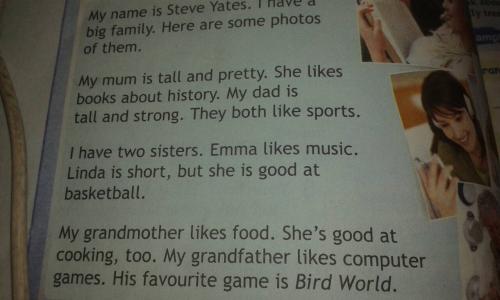
在 10月 31日爱尔兰的孩子们用土豆和萝卡制作"杰克的灯笼他们把中间挖掉、表面上打洞并在里边点上蜡烛。为村里庆祝督伊德神的万圣节,孩子们提着这种灯笼挨家挨户乞讨食物。这种灯笼的爱尔兰名字是"拿灯笼的杰克"或者"杰克的灯笼缩写为Jack-o'-lantern现在拼写为jack-o-lantern。
The traditional Halloween you can read about in most books was just children's fun night. Halloween celebrations would start in October in every elementary-school.
现在你在大多数书里读到的万圣节只是孩子们开心的夜晚。在小学校里,万圣节是每年十月份开始庆祝的。
Children would make Halloween decorations, all kinds of orange-paper jack-o-lanterns. And from black paper you'd cut "scary" designs -an evil witch with a pointed hat riding through the sky on a broomstick, maybe with black bats flying across the moon, and that meant bad luck. And of course black cats for more bad luck. Sometimes a black cat would ride away into the sky on the back of the witch's broom.
孩子们会制作万圣节的装饰品:各种各样桔黄色的南瓜灯。你可以用黑色的纸做一个可怕的造型——一个骑在扫帚把上戴着尖尖帽子的女巫飞过天空,或者是黑蝙蝠飞过月亮。这些都代表厄运。当然黑猫代表运气更差。有时候会出现黑猫骑在女巫扫帚后面飞向天空的造型。
And on Halloween night we'd dress up in Mom or Dad's old shoes and clothes, put on a mask, and be ready to go outside. The little kids (children younger than we were) had to go with their mother,but we older ones went together to neighbors' houses, ringing their doorbell and yelling, "Trick or treat! " meaning, "Give us a treat (something to eat) or we'll play a trick on you! "The people inside were supposed to come to the door and comment on our costumes.
在万圣节的晚上,我们都穿着爸爸妈妈的旧衣服和旧鞋子,戴上面具,打算外出。比我们小的孩子必须和他们的母亲一块出去,我们大一点的就一起哄到邻居家,按他们的门铃并大声喊道恶作剧还是招待,,意思是给我们吃的,要不我们就捉弄你。里边的人们应该出来许价我们的化装。
Oh! here's a ghost. Oh, there's a witch. Oh, here's an old lady.
"噢!这是鬼,那是女巫,这是个老太婆。"
Sometimes they would play along with us and pretend to be scared by some ghost or witch. But they would always have some candy and maybe an apple to put in our "Iriek or treat bags." But what if no one come to the door, or if someone chased us away? Then we' d play a trick on them, usually taking a piece of soap and make marks on their windows. And afterwards we would go home and count who got the most candy.
有时候他们会跟我们一起玩,假装被鬼或者女巫吓着了。但是他们通常会带一些糖果或者苹采放进我们的"恶作剧还是招待"的口袋里。可是要是没人回答门铃或者是有人把我们赶开该怎么办呢?我们就捉弄他们,通常是拿一块肥皂把他们的玻瑞涂得乱七八糟。然后我们回家,数数谁的糖采最多。
One popular teenagers' Halloween trick was to unroll a roll of toilet paper and throw it high into a tree again and again until the tree was all wrapped in the white paper. The paper would often stay in the tree for weeks until a heavy snow or rain washed it off. No real harm done, but it made a big mess of both the tree and the yard under it. One kind of Halloween mischief.
还有一个典型的万圣节花招是把一卷手纸拉开,不停地往树上扔,直到树全被白纸裹起来。除非下大雪或大雨把纸冲掉,纸会一直呆在树上。这并不造成真正的伤害,只是把树和院子搞乱,一种万圣节的恶作剧。
 爱华网
爱华网